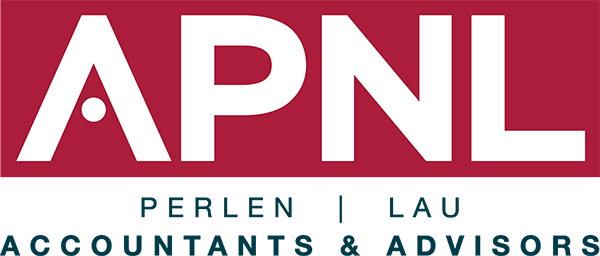Using your business money and assets for private purposes

.
Who needs to know?
This information will help you understand how money taken out of your business, or using business assets for private purposes, must be recorded and reported for tax purposes.
It applies if you are an individual who:
- is a director or shareholder of a company that operates a small business (your business)
- is a trustee or beneficiary of a trust that operates a small business (your business)
- is a director of a corporate trustee for a trust that operates a small business (your business)
- is or has been an associate of the shareholder (individual or entity). An associate can include a relative, partner, spouse, or another entity controlled by a shareholder.
How do you use money or assets from a company or trust
The most common ways you may take or use money or assets from a company or trust are as:
- salary and wages – see employment income
- fringe benefits, such as an employee using the business's car
- director fees
- dividends paid by the company to you as a shareholder (a distribution of the company’s profits) – see paying dividends and other distributions
- trust distributions by the trust to you as a beneficiary – see trustees and beneficiaries
- loans from the trust or company – see loans by private companies
- allowances or reimbursements of expenses you receive from the trust or company.
There are reporting and record-keeping requirements for each of these types of transactions.
How to record and report the use of your business money or assets
You may need to report and must maintain appropriate records that explain transactions of which you have:
- taken money or assets from your business
- used the business's assets for private purposes.
The ATO view on minimum record-keeping standards is provided in Taxation Ruling TR 96/7.
In this section
- Salary, wages or directors’ fees
- Fringe benefits and allowances
Salary, wages or directors’ fees
You can be an employee and a shareholder or director of the company that operates your business. You can also be an employee and a beneficiary of the trust that operates your business.
You must include any salary, wages or directors' fees you receive from your business as assessable income in your individual tax return.
The company or trust that operates your business can generally claim a deduction for any salaries, wages or director's fees paid.
Your business must:
- register for pay as you go (PAYG) withholding and withhold an amount from salary, wages and directors’ fees
- report the payment information to the ATO using Single Touch Payroll (STP)
- pay the amount withheld to the ATO and compulsory employee superannuation contributions to a complying super fund by the relevant cut-off dates.
Fringe benefits and allowances
Fringe benefits tax (FBT) applies when employees or directors of a company or their associates receive certain benefits from the company or trust. This could be a payment or reimbursement of private expenses or being allowed to use the business assets for private purposes such as the business's car.
Your business:
- may be entitled to claim a deduction for the cost of providing fringe benefits
- must lodge an FBT return and pay any FBT that applies to the fringe benefits provided to the employees or their associates
- must keep all records relating to the fringe benefits it provides, including how the taxable value of benefits was calculated.
There are various exemptions from FBT that may apply, for example, the small business car parking exemption.
The FBT liability for your business may be reduced if you (as an employee) make a contribution towards the cost of the fringe benefit.
You don’t need to report the value of fringe benefits that you (or your associate) receive, in your tax return, unless they are included as reportable fringe benefits on your payment summary or income statement.
Distribution of income and profits
In this section
- Dividends
- Trust distributions
Dividends
If your business is run through a company, the company can distribute its profits to its shareholders, which can include you.
This distribution of profits is known as a dividend.
If the company has franking credits, it may be allowed to frank the dividend by allocating a franking credit to the distribution. A franking credit represents income tax paid by the company on its profit and can be used by the shareholder to offset their income tax liability.
A company must issue a distribution statement at the end of each income year to each shareholder who receives a dividend. It must show the amount of the franking credit on the dividends paid and the extent to which they were franked. The company may also need to lodge a franking account tax return in certain circumstances.
Any dividends that you receive and franking credits on them must be reported in your tax return as assessable income.
The company cannot claim a deduction for dividends paid as these are not a business expense, but rather a distribution of company profit.
Trust distributions
If your business is operated through a trust, the trustee may make the beneficiaries presently entitled to a share of trust income by the end of the financial year according to the terms of the trust deed.
By the end of a financial year, the trustee should advise and document in the trustee resolution:
- details of the beneficiaries
- their share of the net income of the trust.
If the trustee resolution is not made according to the terms of the trust deed, it may be ineffective and, instead, other beneficiaries (called default beneficiaries) or the trustee may be assessed on the relevant share of the trust's net (taxable) income. Where a trustee is assessed, it may be at the highest marginal tax rate.
Details of the trust distribution should be included in the statement of distribution which is part of the trust return lodged for each financial year.
The trust cannot claim a deduction for distributions paid as it is not a business expense, but rather a distribution of trust income.
If the beneficiary of a trust is a company, and the trust does not pay the amount the company is presently entitled to, Division 7A of the Income Tax Assessment Act 1936 can apply.
Closely held trusts
If you have a trust within your family group, in some circumstances you may need to include a trustee beneficiary statement as part of the trust return lodged.
For further guidance, see closely held trusts.
Lending money or assets
In this section
- Companies lend money or assets to shareholders and their associates
- Trustees lend money or assets to beneficiaries and their associates
Companies lend money or assets to shareholders and their associates
A company can make a loan to its shareholders and associates.
When a company lends money or assets to a shareholder, the shareholder may be taken to have received a Division 7A deemed dividend if certain conditions are not met. If this happens, the shareholder will need to report an unfranked dividend in their individual tax return and the company will have to adjust their balance sheet to reduce their retained profits.
To avoid a Division 7A deemed dividend, before the company tax return is due or lodged (whichever comes first), the loan must either:
- be repaid in full
- put on complying terms.
To put a loan on complying terms, the loan must:
- be in a written agreement and signed and dated by the lender
- have an interest rate for each year of the loan that at least equals the benchmark interest rate
- not exceed the maximum term of 7 years, or 25 years in certain circumstances when the loan is secured by a registered mortgage over real property.
The company must include any interest earned from the loan in its tax return.
You (the shareholder):
- must make the minimum yearly repayment each year (use the Division 7A calculator to work this out)
- cannot borrow money from the company to make the minimum yearly repayment
- can make payments on the loan using a dividend declared by the company. This dividend must still be reported in your individual tax return as assessable income.
Trustees lend money or assets to beneficiaries and their associates
If you borrow money from the trust, you will need to keep a record of it. If the loan is on commercial terms, you will need to repay the principal and interest as per the loan agreement. The trust will need to report the interest as assessable income in its tax return.
There may be a situation where someone receives an amount of trust income instead of the beneficiary who is presently entitled to that amount in an arrangement to reduce tax. This can happen where the trustee, instead of paying the trust income to the presently entitled beneficiary, lends that money on interest-free terms to another person.
This is called a reimbursement agreement and section 100A of the Income Tax Assessment Act 1936 may apply. This means that the net income of the trust that would otherwise have been assessed to the beneficiary (or trustee on their behalf) is instead assessed to the trustee at the top marginal tax rate.
Repayments of loans made to companies and trusts
If you have lent money to your business, your business will make repayments to you.
Your business cannot claim a deduction for any repayments of principal it makes to you but may be able to claim a deduction for interest it pays to you on the loan. The company or trust should keep records of any loan agreements and documents explaining these payments being made to you.
You do not have to declare the principal repayments, but any interest you receive from your business is assessable income to you and must be included in your individual tax return.
When you take your business's money or assets in another way
If you take money out of your business or use its assets for private purposes in a way not described above, you or your business may have unintended tax consequences. This may include triggering Division 7A.
To ensure your business transactions are transparent:
- You should consider setting up a separate bank account for your business to pay business expenses and avoid using it to pay for your private expenses.
- If you take money out of the business or use its assets, make sure you keep proper records that explain all your business transactions, including all income, payments and loans to you and your associates from the business and loans from you to the business.
- If your company lends money to you or your associates, make sure it's based on a written agreement with terms that ensure it's treated as a complying loan – so the loan amount isn't treated as a Division 7A dividend.
- Ensure the transactions are correctly reported for tax purposes.
If you make an honest mistake when trying to comply with these obligations, you should tell us or your registered tax agent as soon as possible.
ATO
ato.gov.au
